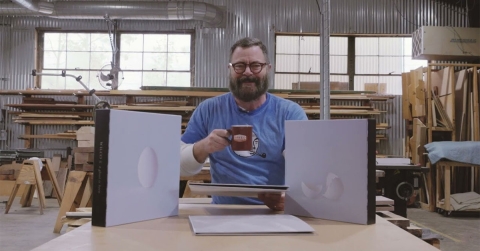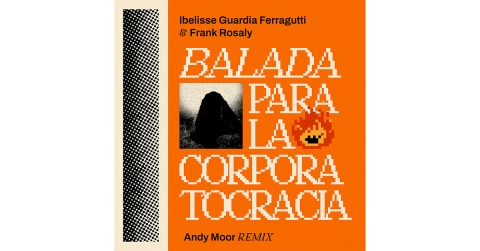The singer Mariam Doumbia and her husband, the guitarist/vocalist Amadou Bagayoko, have been making music together since they first met and fell in love at the Institute for Young Blind People in Bamako, Mali’s capital, three decades ago. They now perform to crowds of thousands (often tens of thousands) in cities worldwide. Three years in the making, Amadou & Mariam’s new album, Welcome to Mali, has been released in the UK and is being embraced as enthusiastically as its predecessor, the Grammy-nominated Dimanche à Bamako. Because Music / Nonesuch Records releases Welcome to Mali in the US on March 24, 2009.
The singer Mariam Doumbia and her husband, the guitarist/vocalist Amadou Bagayoko, have been making music together since they first met and fell in love at the Institute for Young Blind People in Bamako, Mali’s capital, three decades ago. Over the last few years, they have achieved remarkable critical and popular acclaim in Europe and North America. They now perform to crowds of thousands (often tens of thousands) in cities worldwide. Three years in the making, Amadou & Mariam’s new album, Welcome to Mali, has been released in the UK and is being embraced as enthusiastically as its predecessor, the Grammy-nominated Dimanche à Bamako. Because Music / Nonesuch Records releases Welcome to Mali in the US on March 24, 2009.
The new recording’s opening track, “Sabali,” shows Amadou & Mariam investigating new ideas from those on Dimanche à Bamako, the 2005 album they made in close collaboration with Manu Chao. “Sabali” is produced by Damon Albarn, who is intimately familiar with the West African blues at the heart of the duo’s sound; he brings to the song a hip-hop rhythm and electronic elements more akin to his Gorillaz productions than to anything traditionally Malian. The rest of Welcome to Mali is produced by Amadou & Mariam’s longtime collaborators Marc-Antoine Moreau and Lauren Jais, who help the duo integrate a diversity of other artists and sounds: the hip-hop of K’Naan and Keziah Jones, the virtuosic kora playing of Nonesuch label mate Toumani Diabate, the funk of Juan Rozoff, the reggae of Côte d’Ivoire’s Tiken Jah Fakoly, and the indie rock of Mathieu Chedid, who is well-known in France simply as M. The duo recorded the album in Bamako, Dakar, Paris, and London.
In a five-star review, London’s Observer Music Monthly has said, “Welcome to Mali will be appreciated by millions; not as ‘world music’ but as the product of an authentically global pop phenomenon.” MOJO, Uncut, The Sunday Times, The Guardian, Time Out London, The Independent, The Daily Telegraph, and others in the British press have responded with equal excitement.
Dimanche à Bamako has sold more than 600,000 copies worldwide and has won Amadou & Mariam numerous honors, including a Grammy nomination; France’s prestigious Victoire de la Musique; and the Album of the Year and Best African Album distinctions in the BBC Radio 3 Awards for World Music. Amadou & Mariam are also the first African artists to make the short list in MOJO magazine’s annual Honours List.
In the US, Dimanche was featured in the Best of 2005 lists of Rolling Stone, SPIN, Blender, TIME, Time Out New York, and others, and also earned tremendous critical praise from the New York Times, Los Angeles Times, The New Yorker, Entertainment Weekly, and National Public Radio, to name just a few.
Amadou & Mariam are especially beloved for their live shows. They recently performed in the Africa Express event that was part of the BBC Electric Proms festival; the concert also featured Johnny Marr, The Magic Numbers, Damon Albarn, and Hard-Fi as well as numerous African artists.
- Log in to post comments



